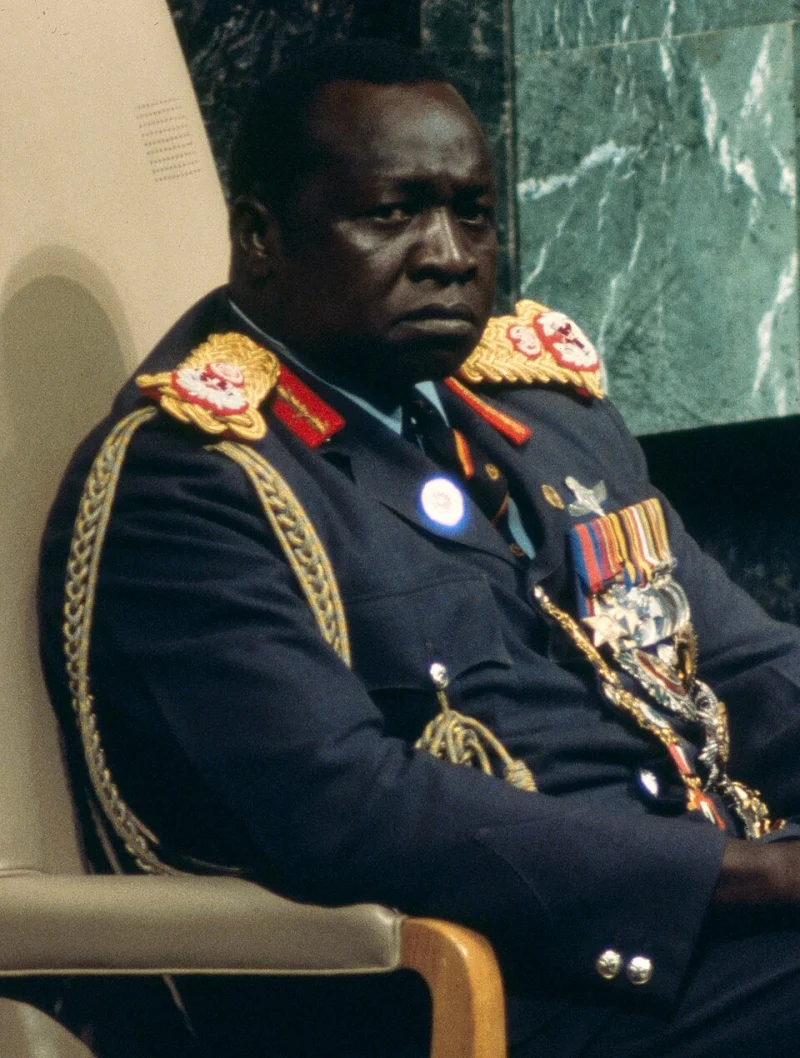Short Summary
Idi Amin was a Ugandan military officer and politician who served as the President of Uganda from 1971 to 1979. He is infamous for his brutal regime characterized by widespread human rights abuses, political repression, ethnic persecution, and economic mismanagement. Amin's leadership left a lasting impact on Uganda and has been a subject of study for its authoritarian rule and its effects on the nation.
Early Life & Education
Idi Amin was born around 1925 in Koboko, a region of northwestern Uganda, to a Kakwa father and a Lugbara mother. His formal education was limited, attending only a few years of school before leaving. In 1946, he joined the King's African Rifles of the British colonial army as an assistant cook. Over time, he rose through the military ranks due to his physical stature and skills, eventually becoming one of the few Africans to be promoted to a senior position within the colonial army. His early military career laid the foundation for his future in Ugandan politics.
Career Highlights
After Uganda gained independence in 1962, Amin quickly advanced within the Ugandan military ranks. By 1970, he had become the chief of the army and air force. In 1971, he seized power in a coup, overthrowing President Milton Obote. His presidency was marked by repression, and it is estimated that hundreds of thousands of people were killed or disappeared during his rule. Despite his controversial governance, Amin received support from some Western and Arab nations due to his stance against communism and his expulsion of Asians from Uganda, which appealed to nationalist sentiments.
Major Achievements
- Seized power in Uganda through a military coup in 1971, becoming president.
- Expelled Asians from Uganda in 1972, redistributing their businesses to Ugandans.
- Established himself as a prominent figure in the OAU (Organization of African Unity).
Famous Quotes
- "In any country there must be people who have to die. They are the sacrifices any nation has to make to achieve law and order."
- "I am the hero of Africa."
Interesting Facts
- Amin was known for his flamboyant and often eccentric personality.
- He declared himself "Conqueror of the British Empire" in Uganda.
- Amin had a fascination with Scotland and declared himself as the "Last King of Scotland."
Legacy / Influence
Idi Amin's regime is often cited as an example of extreme authoritarianism, and his legacy is primarily one of brutality and misrule. His actions resulted in severe economic decline and left a deep scar on Uganda's social and political fabric. Despite the negative aspects of his rule, his impact is studied in political science as a case of dictatorial governance.
FAQ
Q: Why is Idi Amin famous?
A: Because of his brutal dictatorship in Uganda from 1971 to 1979.
Q: How did Idi Amin come to power?
A: He seized power through a military coup in 1971.
Q: What was a significant action taken by Idi Amin during his rule?
A: He expelled Asians from Uganda in 1972.









